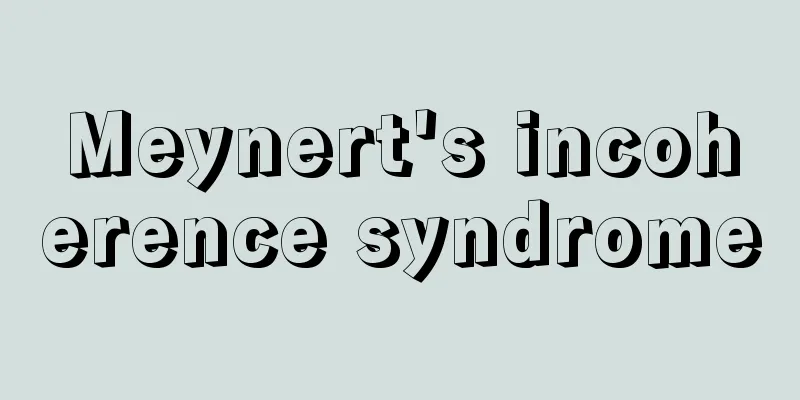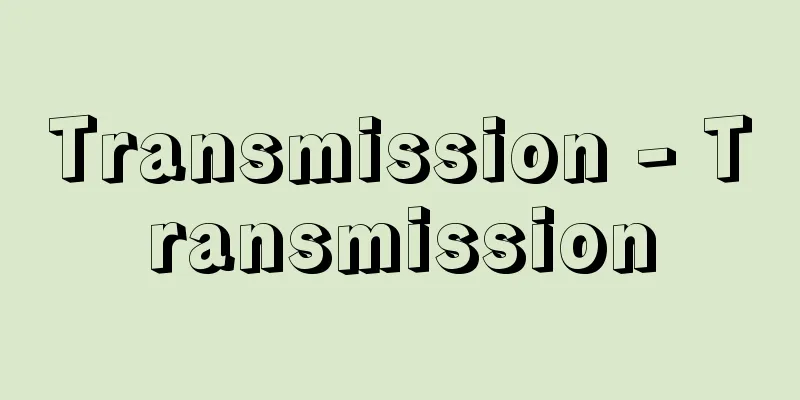Political consciousness

|
Generally speaking, political consciousness refers to psychological phenomena and patterns of behavior, such as beliefs, attitudes, judgments, thoughts, and emotions toward politics. In Anglo-American political science, the psychological orientation determined by people's preferences and values toward political situations and events is called political attitude, the form of expression of political attitude is called political opinion/political behavior, and the set of attitudes, beliefs, and emotions that provide the basic assumptions and rules governing the behavior of people in a political society is called political culture. The concept of political consciousness is a comprehensive concept that corresponds to all of these concepts. For this reason, the analysis of political consciousness covers a wide range of topics, including political philosophy, political thought, ideology, political opinions and public opinion, political images and political attitudes, but the general issues are (1) individual political consciousness, (2) types of collective political consciousness, and (3) the distribution of political consciousness in society and its effects. The formation of political consciousness is influenced by a variety of factors in a multi-layered way, including personal factors such as personality and character, socio-demographic factors such as age, gender, occupation, social status, class, and group affiliation, as well as cultural and historical factors. Based on these factors, the individuals who make up a society form their own unique political consciousness through political socialization, in which they learn and assimilate the political values and attitudes generally accepted in society, and through political indoctrination by those in power. Furthermore, collective political consciousness, including public opinion, political climate, and political culture, is formed based on this individual political consciousness. [Yoshifumi Tanito] The process and structure of political consciousnessIndividual political consciousness and the collective political consciousness based on them are transmitted to the decision-making sphere within the political system through institutions such as political leaders, political parties, pressure groups, bureaucrats, and the mass media, where they are transformed into policies and decisions. These policies and decisions are transmitted with authority and power to the individuals who make up political society, and individuals then form new political consciousness in response to these policies and decisions. This fluid cycle is called the dynamic or processual aspect of political consciousness. However, while political consciousness is constantly changing and fluid, it also has an aspect of being fixed and stabilized within individuals and society. This is called the static or structural aspect of political consciousness. Stabilized and fixed political consciousness is expressed in various forms, such as political opinion, ideology, political thought, and political philosophy, which are mutually structurally related. For example, if political consciousness is arranged on an axis going from the unconscious (unorganized) to the conscious (organized), it can be said to be structured in a multi-layered manner, with interconnected elements such as political character/personality, political attitude, political opinion/public opinion, political thought/philosophy, ideology, and policies/plans. The German sociologist Adorno points out that the personalities of people who are sympathetic to authoritarianism are more likely to accept anti-democratic ideologies, and this observation makes clear the multi-layered interconnectedness of political consciousness. [Yoshifumi Tanito] Types of political consciousnessDifferent forms of political society inevitably lead to different forms of political consciousness, and various forms of political consciousness have been pointed out in relation to political society. In traditional societies where feudal class systems were institutionalized and the relationship between rulers and the ruled was fixed, politics was the concern of a handful of people, such as monarchs and aristocrats, and many people were dominated by the traditional sense of indifference that politics was someone else's job. In modern societies, where the middle class emerged with the collapse of feudalism and became the main players in political society as citizens, there is a growing awareness that the acquisition of values such as property, power, knowledge, skills, and honor through constant effort, following the conscience instilled in one's childhood, is a way of proving one's abilities and realizing oneself. Involvement in politics and the acquisition of political power are also perceived as a kind of mission for self-realization. In modern societies, where a large number of people have come to participate in politics against the backdrop of industrialization and urbanization, politics has permeated society widely, resulting in the emergence of diverse political consciousness. American sociologist Riesman categorizes modern political consciousness into four types: the indignant type, where people who used to be involved in politics with a certain sense of mission are unable to adapt to modern society, become frustrated, and try to resist; the enthusiastic type, who do not distance themselves from political dissatisfaction but are involved in politics with hope; the insider type, who are only interested in understanding politics; and the modern apathetic type, who have political information and knowledge but have no involvement in politics. It can be said that one of the characteristics of the modern era is that political apathy has become widespread, especially as organizations become larger and more bureaucratic. [Yoshifumi Tanito] "An Analysis of Political Consciousness" by Kyogoku Junichi (1968, University of Tokyo Press)" ▽ "A Study of Political Consciousness" by Nagai Yonosuke (1971, Iwanami Shoten)" ▽ "Modern Political Consciousness Theory" by Kobayashi Yoshiaki, Tanito Etsushi, et al. (1984, Kobundo Publishing)" ▽ "The Lonely Crowd" by D. Riesman, translated by Kato Hidetoshi (1964, Misuzu Shobo) Source: Shogakukan Encyclopedia Nipponica About Encyclopedia Nipponica Information | Legend |
|
一般に、政治に対する信念、態度、判断、思考、感情などの心理的事象および行動様式を政治意識という。英米の政治学では、人々が政治状況や事象に対してもつ選好や価値によって規定される心理的指向を政治的態度、政治的態度の表現形態を政治的意見・政治行動、政治社会内の人々の行動を支配する基礎的な前提やルールを供給する態度・信条・感情の集合を政治文化と称しているが、政治意識の概念は、それらの諸概念にも対応する包括的概念である。このため、政治意識の分析は、政治哲学、政治思想、イデオロギー、政治的意見と世論、政治的イメージと政治的態度など広範囲にわたっているが、全体としては、〔1〕個人の政治意識、〔2〕集合的政治意識のタイプ、〔3〕政治意識の社会における分布とその効果などが問題とされる。 政治意識の形成には、パーソナリティー、性格などの個人的要因、年齢、性別、職業、社会的地位、階級、帰属集団などの社会人口学的要因、文化的要因、歴史的要因などさまざまな因子が重層的に影響を与える。社会を構成する諸個人は、こうした因子を前提として、社会で一般に通用している政治的価値や態度を学習しそれらに同化していく政治的社会化や、支配者による政治的教化を通じて、固有の政治意識を形成する。また、こうした個人の政治意識を基本として、世論、政治風土、政治文化などの集合的な政治意識が形成されるのである。 [谷藤悦史] 政治意識の過程と構造個々の政治意識やそれらを基礎とした集合的政治意識は、政治的リーダー、政党、圧力団体、官僚、マス・メディアなどの諸制度を通じて政治体系内部の決定領域に伝達され、そこで、政策や決定に移し変えられる。こうした政策や決定は、権威や権力を伴って、政治社会を構成する個々人に伝達されるが、個人は、こうした政策や決定に応じて、さらに新たな政治意識を形成することになる。このような流動的なサイクルを、政治意識の動態的側面あるいは過程的側面と称している。しかし、政治意識は、絶えず変化し流動化している一方で、個人や社会内部で固定化、安定化する側面をもっている。これを、政治意識の静態的側面あるいは構造的側面と称している。安定化し固定化した政治意識は、政治的意見、イデオロギー、政治思想、政治哲学など、さまざまな形で表現されるが、それらは相互に構造的な連関性をもっている。 たとえば、政治意識を無自覚的部分(未組織的部分)から自覚的部分(組織的部分)へと至る軸で配列すると、政治的性格・パーソナリティー、政治的態度、政治的意見・世論、政治思想・政治哲学、イデオロギー、政策・計画というように相互に連関しながら重層的に構造化されているといえよう。ドイツの社会学者アドルノは、権威主義に対して同調的な人々のパーソナリティーは、反民主主義的なイデオロギーを受容しやすいと指摘しているが、こうした指摘は、政治意識の重層的な相互連関性を明らかにするものである。 [谷藤悦史] 政治意識の型政治社会の形態が異なれば、必然的に政治意識の形態も異なることから、政治社会との関連でさまざまな政治意識の形態が指摘されている。封建的身分制などが制度化され、支配者と被支配者の間を分離し、固定化しているような伝統的社会では、政治は、君主や貴族など一握りの人々の関心事であり、多くの人々は、政治はだれか他人の仕事であるという意識、伝統的無関心が支配的であった。封建制の解体とともに登場した中産階級が、市民として政治社会の主要な担い手となった近代社会では、幼少年期に植え付けられた良心に従って、財産、権力、知識、技能、名誉などの価値を絶えざる努力によって獲得することが、自己の能力を証明することであり、自己を実現することであるという意識が台頭する。政治に関与し、政治権力を獲得することも、自己実現のためというようなある種の使命感をもってとらえられることになる。産業化、都市化を背景として大量の人々が政治に参加するようになった現代社会では、政治が社会内部に広く浸透した結果、多様な政治意識が出現する。アメリカの社会学者リースマンは、現代の政治意識を、ある種の使命感をもって政治に関与していた人々が、現代社会に適応できず欲求不満に陥り抵抗を試みるような憤慨型、政治不満から身を遠ざけるのではなく、希望を抱きながら政治に関与する熱心型、政治を理解することだけに興味を抱く内幕情報屋型、政治情報や政治知識をもっていながら政治にかかわりをもたない現代的無関心型の四つのタイプに類型化している。とりわけ組織の巨大化、官僚制化のなかで、政治的無関心が広く浸透しているのが、現代の特徴であるといえよう。 [谷藤悦史] 『京極純一著『政治意識の分析』(1968・東京大学出版会)』▽『永井陽之助著『政治意識の研究』(1971・岩波書店)』▽『小林良彰・谷藤悦史他著『現代政治意識論』(1984・高文堂出版社)』▽『D・リースマン著、加藤秀俊訳『孤独な群衆』(1964・みすず書房)』 出典 小学館 日本大百科全書(ニッポニカ)日本大百科全書(ニッポニカ)について 情報 | 凡例 |
>>: Politics - Seiji (English spelling) politics
Recommend
Yao Dòng (English spelling)
Cave dwellings dug into steep walls are found in t...
Emukae [town] - Emukae
An old town in the northwest of the Kita Matsuura ...
Legion
...The life table also uses this concept. The ori...
The Rosenkavalier
A music drama with a libretto by Austrian playwri...
Room
… It is found in India, southern China, Indochina...
Qaṣr al‐Mshattā (English: Palace of Mushatā)
This Umayyad fortress-style palace remains about 4...
Charlestown
…When Columbus discovered them in 1493, the cloud...
Opening protection deposit - Opening protection deposit
...Normally, a fee is charged. There are two type...
Phylogenetic tree
A tree-like representation of the relationships b...
Alumina cement
Also called fused cement. A hydraulic cement whos...
Pure and impure
〘Noun〙① Pure and impure. Clear and impure. ※Sankyo...
Security Council
One of the main organs of the United Nations. It ...
Andronicus, L. - Andronicus
...In the following, we will look back historical...
Morichika Unpei
A socialist of the Meiji period. Born in Okayama ...
Kaden
〘Noun〙① ("田" means hunting in rice field...









